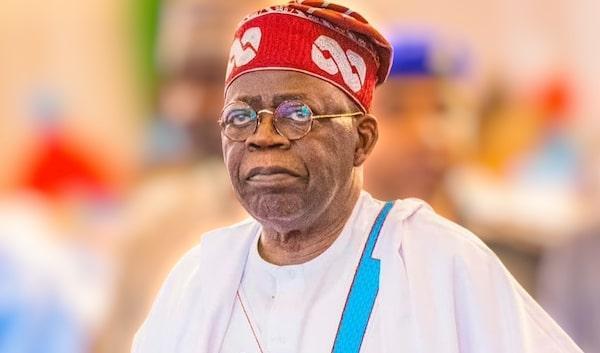
Abba Hamisu Sani
Africa-Press – Nigeria. On 20th August President Bola Ahmed Tinubu inaugurated his cabinet of 45 Ministers exactly 84 days after his swearing as the the fifth Democratically elected President from 1999 when the Civil rule returned to the Country after long military rule.
The number of the appointed ministers is described as high by many spectators considering the economic condition of the country where government activities are mainly financed by foreign and local debts.
Comparing Timubu’s number of Ministers with that of his predecessor Muhammadu like Buhari indicates that there is an increase as the former appointed 36 six ministers during his first tenure from 2015 to 2019 and the number increased to 42 during his second tenure 2019 to 2023.
Also down the line Jonathan administration which was succeeded by Buhari’s administration has 33 Ministers while late President Yar’adua has 39 ministers in his cabinet and former President Olusegun Obasanjo started with 42 ministers in 1999 which latter cut to 27 and subsequently increased to 40 before leaving office in 2007.
The trend of retaining Petroleum Ministerial posts by the President
By all indications President Tinubu is trying to emulate his predecessor Muhammadu Buhari by retaining the Ministry of Petroleum resources under his office.The Former President who held the petroleum ministry for eight years appointed Junior Ministers Known as State Ministers.
Unlike Buhari, Tinubu duplicated the Ministry into two as he appointed State Ministers ,one as minister of Oil and the other for Gas leaving the Ministry without a Cabinet minister .
Public affairs and economic analysts are expressing divergent opinions with regard to the situation as some are saying Tinubu lacks the required expertise to manage the sector which suffered a lot of setbacks under the former President Buhari.
The oil and gas sector, which is gasping for fresh breath after eight years of former President Muhammadu Buhari’s poor handling, may be heading for a final collapse if President Bola Tinubu follows the path of his predecessor by reserving the ministry for himself.
With crude oil production failing from about two million barrels in 2014 to about 900,000 barrels a day in 2022, revenue plummeted to a historic low starving the economy of the needed foreign exchange with consequences seen in falling external reserves and exhausted excess crude account.
Stakeholders that speak at various levels with regard to the possible retention of the position by president said that any attempt by Tinubu to retain the office of the Minister of Petroleum Resources would amount to an invitation to catastrophe.
They insisted that Tinubu had already shot himself in the foot with the appointment of separate ministers of state for gas and petroleum, adding that only an ill-advised president would have made such a mistake, especially with the operators already struggling with the two regulators.
The drop of Oil revenue under Buhari’s watch as the Minister of Petroleum
A few years before Buhari assigned himself the position, oil revenues were buoyant. Oil revenue was $68.44 billion in 2011 while it was $62.84 billion in 2012. It was $58 billion in 2013, $54 billion in 2014 but went nosedive to $24.79 billion in 2015.
In 2016, it was a meager $17 billion before hitting $20.98 billion in 2017 and $32.62 billion in 2018. It was $34.21 billion in 2019. The total revenue received from the sector was $20.43 billion in 2020.
While Nigeria collected 21 trillion Naira ($45.6 billion) from the sale of crude oil in 2022, according to the National Bureau of Statistics (NBS), remittances to Federation Account Allocation Committee (FAAC) were scanty as the government sustained borrowing to sustain fuel subsidy.
Sadly, the leadership issue in the oil sector comes at a time when Nigeria and other African countries are projected to record $6.7 trillion loss in stranded fossil fuel assets due to pressure from the energy transition.
Recall that investment into the sector has plunged just as crude oil reserves have stagnated at about 37 million barrels for over a decade even as religious and regional sentiments escalated in the eight years of Buhari as the petroleum minister.
Two ministers of state who served during the tenure of Buhari ibe Kachikwu and Timpire Silva were just figureheads without powers to make meaningful decisions in the sector. as they were constantly at loggerheads with management of the state oil firm, Nigerian National Petroleum Company Limited, even as decision-making favored those who had access to the then unavailable petroleum minister.
Professor Wunmi Iledare is an energy expert .He believes that Nigeria is deliberately pushing its way to the Venezuela situation, urging Tinubu to perish the idea of making himself the Petroleum Minister.
He said the President should avoid adding complex responsibilities to the enormous task of governing a complex nation.
“Perhaps he has not been properly briefed about the Petroleum Industry Act (PIA) institutions.” The Expert said while the Nigerian economy is on crutches with oil and gas still a major revenue earner, Iledare noted that Venezuela offers Nigeria a great lesson on what not to do concerning managing the oil and gas sector in a petroleum-dependent economy.
“The last eight years under Buhari as the Minister of Petroleum left much to be desired. The mandates in the PIA for the Minister of Petroleum are very tasking and the responsibilities are daunting
Alternatives thereby further creating a long-term dependency on fossil fuels, at a time when all efforts should be made to depetrolize the economy.
A former Chairman of the Society of Petroleum Engineers (SPE), Joseph Nwakwue said it would be difficult to justify that Tinubu would retain the Petroleum Minister position
“We have tried that without much success “Nwakwue said, Stressing that it would have been better to appoint an oil and gas technocrat, which the country has in excess to drive growth in the sector.
“This sector is bleeding badly and gasping for air. The Nigerian economy is hugely dependent on this sector. To reverse our dwindling fortunes, nothing but a competent and tested professional would work,” Nwakwue said.
He also insisted that the separation of gas from Petroleum is ill-advised.
Former management staff at Shell, Madaki Ameh noted that the prevailing development showed that the country is headed for another incompetent handling of the oil and gas industry in Nigeria.
“Tinubu does not know the Oil and Gas Industry to opt to be the substantive Minister of Petroleum Resources. We will see another period of cluelessness and ineptitude in the running of the Petroleum Industry. These initiatives are going to implement the Petroleum Industry Act even more tenuously and duplicative.”He stated.
Ameh rejected the separation of the Minister of State for Oil from the Minister of State for Gas, stating that if the intention was to focus on Gas, it would only increase the level of red tape around the running of the industry, thereby increasing the cost of governance.stated
Contrary view on how Tinubu can handle the Petroleum sector
A renowned energy scholar at the University of Ibadan, Professor Adeola Adenikinju, believes that Tinubu may be able to handle the petroleum industry better and differently than Buhari.
According to him, it has the advantage that the sector would attract the highest level of attention.
“I think the personalities of Buhari and Tinubu are different. It may not be right to use the same brush to paint them. You can infer that in the way and manner labor strikes have been addressed under the two presidents,” he noted.
Adenikinju, however, said the separation of gas from petroleum with a separate minister of state may further c
complicate the operations of the petroleum sector if not properly managed.
“Operators are already finding it difficult with the two regulators in the petroleum sector. There are overlaps of functions and undercurrent competition between the two regulators,” he noted.
Noting that although the arrangement could have some merits, a lot of work must be done to ensure that lines of responsibilities and jurisdictions are clearly defined.
Director at the Centre for Transparency, Faith Nwadishi, said although the President has not publicly declared himself as the minister of petroleum, such development must not happen.
“If that happens, it will be business as usual because the President is very busy handling the country and ECOWAS chair. Taking over petroleum would be back to square one.
Nwadishi lauded the gas plan, saying that a state of emergency should be declared on gas for the projected plan to be achieved.
She however warned that separating the roles and ensuring that the development does not create further instability is sacrosanct.
However with all these views what Nigerians need is to see change in the economy whether the President handles the Ministry of Petroleum resources or he appointed someone to handle it.
It is evident that during the Jonathan administration the sector was handled by a substantive Minister Alison Maduke who is still facing different corruption allegations charges both in Nigeria and the United Kingdom.
So now by splitting the Sector in to two by appointing State Minister of Oil and separate for Gas what is expected is much more positive change not just mare expansion to provide opportunities for politicians who always seek for compensation as party members.
For More News And Analysis About Nigeria Follow Africa-Press






